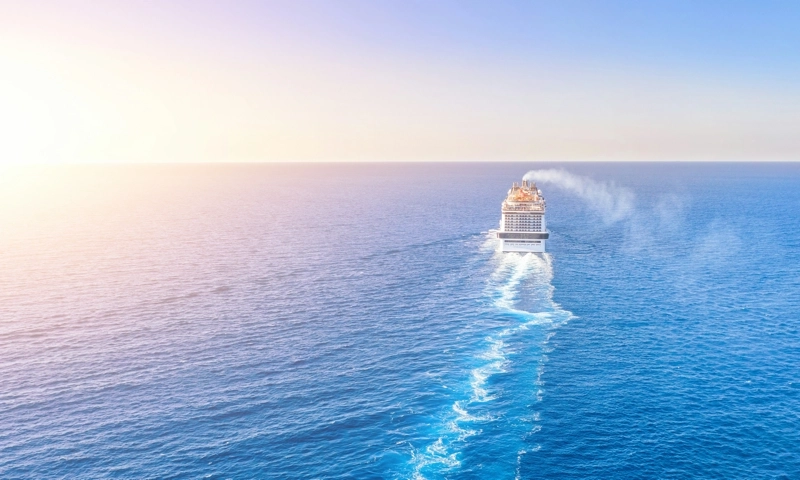Progress in Cruise Industry’s Environmental Technologies
The global cruise industry has been steadily improving its environmental footprint, embracing advanced technologies and practices to reduce emissions and enhance operational efficiency. The Cruise Lines International Association (CLIA) recently reported significant progress from 2018 through 2024, underscoring the industry’s commitment to sustainability.
CLIA-member lines, which represent over 90% of the ocean-going cruise market, are pioneering efforts in adopting alternative fuel sources, such as biofuels, alongside innovative fuel-flexible engines. These efforts are supported by investments in energy efficiency and the incorporation of cutting-edge systems like advanced wastewater treatment and air lubrication technologies. Such steps showcase the industry’s role as an early adopter and innovator in maritime environmental standards.
Key Environmental Innovations in Cruise Fleets
- Biofuel Testing and Usage: Initiatives to pilot biofuels, including sourced waste oils, to decrease dependence on traditional fossil fuels.
- Fuel-Flexible Engines: Development and deployment of engines that can operate efficiently on multiple fuel types, reducing emissions.
- Wastewater Treatment Advances: Implementation of advanced systems aboard ships to treat greywater and blackwater responsibly.
- Onshore Power Supply: Increasing use of shore-side electrical connections to lower air pollution while docked.
- Air Lubrication Systems: Technologies that reduce hull friction and improve fuel efficiency during voyages.
Investments Driving the Fleet of Tomorrow
The industry’s investment pipeline includes more than 80 new vessels ordered globally, each designed with a focus on environmental innovations. These new ships incorporate the latest green technologies, promising more energy-efficient operations and a reduced ecological footprint—for passengers and marine ecosystems alike.
Historical Context: Environmental Challenges and Industry Response
The cruise industry’s environmental history has not been without challenges. In the 1990s, issues such as the dumping of waste, oil spills, and damage to coral reefs frequently marred the sector’s reputation. The logistics of managing waste from the equivalent of densely populated small towns onboard megaships remained a significant hurdle.
| Waste Type | Typical Volume per 7-day Cruise | Regulations |
|---|---|---|
| Greywater (sinks, showers) | Approximately 4 million litres | Can be legally dumped almost anywhere at sea |
| Blackwater (sewage) | Approximately 400,000 litres | Greater restrictions; can be dumped in high seas where dilution is assumed |
Air pollution has been another concern, with port cities occasionally impacted by ships running engines while docked instead of using cleaner shore power. Moreover, unintended consequences, such as increased bird mortality due to ship lighting during migrations, underline the complexity of environmental management.
However, in recent decades, major cruise lines have shifted toward a more responsible approach. Some have adopted rigorous environmental management systems, appointed dedicated environmental officers on ships, and encouraged comprehensive recycling programs onboard. These measures mark a clear turn toward minimizing ecological impacts.
Environmental Management in Practice
- Dedicated Environmental Officers: Crew members tasked with overseeing sustainable practices onboard.
- Recycling Initiatives: Programs aimed to reduce waste through onboard segregation and recycling.
- ISO Environmental Standards: Adoption of international standards to guide environmental management.
Environmental Sustainability and Its Role in Tourism Growth
The cruise sector’s environmental progress ties directly into its sustained growth in global tourism. As eco-awareness rises among travelers, demand increases for cruises and boating experiences that prioritize sustainable practices. A clean, healthy marine environment is a fundamental resource for tourism — from pristine beaches to bustling marinas and tranquil sailing destinations.
Destinations that receive cruise ships and yachts benefit economically through passenger spending onshore, often at coastal towns, marinas, and local beaches. However, maintaining environmental stewardship remains crucial to preserve these marine and coastal assets, which directly support activities like sailing, fishing, and beach tourism.
Forecast: The Impact of Green Technologies on International Travel
Looking ahead, the continued integration of green technologies within passenger vessels, as well as sailboats and yachts, will set a new standard for international marine tourism. This shift promises to reduce the industry’s carbon footprint while enhancing passenger experience through quieter, cleaner journeys. The rise of dual-fuel engines and the adoption of biofuels suggest a future where sailing and boating contribute positively to preserving the oceanic environment.
| Environmental Practice | Expected Outcome |
|---|---|
| Use of Dual-Fuel Engines | Lowered emissions and flexible fuel sourcing |
| Advanced Wastewater Treatment | Reduced pollution of marine ecosystems |
| Onshore Power Supply Connection | Decreased air pollution during port visits |
| Increased Biofuel Use | Reduction in fossil fuel dependence |
Conclusions and Outlook for Yacht and Boat Rentals
Advances in environmental technologies by cruise lines set a promising precedence for all marine leisure activities, including yacht and sailboat charters. As cruise fleets adopt cleaner fuels and reduce emissions, similar technologies and practices are increasingly relevant for smaller vessels that roam the seas, lakes, and gulfs. Sustainable growth in cruising and boating tourism depends heavily on preserving the water and seaside environments that attract visitors year after year.
For enthusiasts seeking unforgettable sailing experiences, whether chartering a yacht or renting a boat near popular destinations with clear waters and sandy beaches, these developments signal an exciting era of environmentally conscious marine travel. The prospect of cruising or sailing with reduced ecological impact adds value to the adventure and ensures that coastal communities can continue to benefit economically while safeguarding their natural resources.
For those interested in the latest marine tourism trends and seeking the perfect yacht or sailing boat rental to enjoy the stunning gulf, sea, or ocean, the international marketplace GetBoat.com offers an extensive selection. It stands as one of the best services to find boat charters that suit every taste and budget, facilitating unforgettable adventures under the sun and wind.
Embracing sustainable cruising and boating is more than a trend; it’s a commitment to the future of ocean travel, the health of aquatic ecosystems, and the joy of exploring destinations across the globe.
—
 Advancements in Environmental Technologies Among Global Cruise Lines">
Advancements in Environmental Technologies Among Global Cruise Lines">
